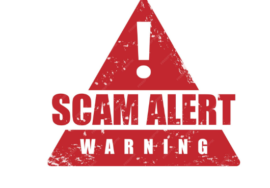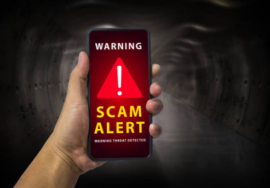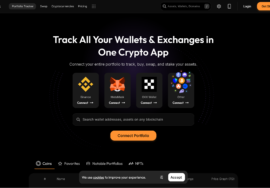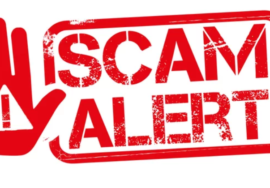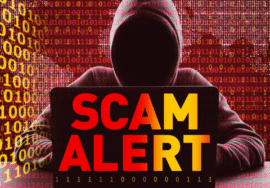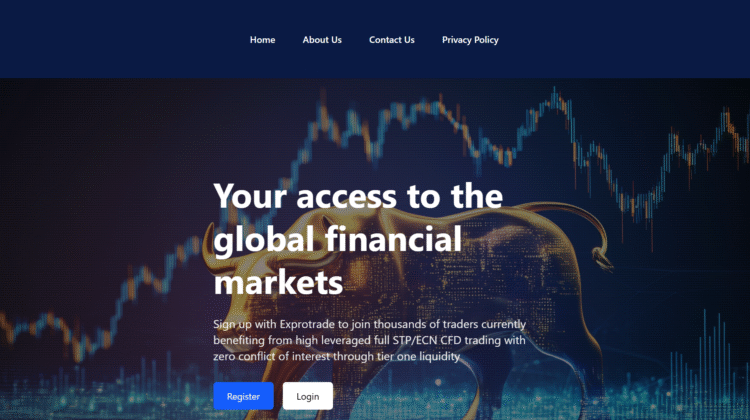
7 Critical Red Flags: Why ExproTrades (exprotrades.com) Looks Extremely Risky
7 Critical Red Flags: Why ExproTrades (exprotrades.com) Looks Extremely Risky

ExproTrades markets itself as an online broker/investment platform with broad market access, attractive plans, and “easy” deposits and withdrawals. On the surface, the site’s language can sound convincing: multi-asset trading, professional tools, strong support, fast execution, and the promise of simple, transparent investing. However, when you dig into regulatory notices, third-party safety databases, and complaint patterns, multiple serious red flags appear. Below are seven risk factors you should understand in depth before sending a cent to ExproTrades.
1) Named in a CySEC warning (core regulatory red flag)
The Cyprus Securities and Exchange Commission (CySEC) explicitly warned the public in June 2024 about numerous unauthorized investment websites—and exprotrades.com is on that list. This is not a minor blog post or rumor; it is an official regulator alert that the site does not belong to an entity authorized to provide investment services under Cyprus law. When a respected European regulator groups a website among “unregulated/unauthorized” entities, it means the platform is operating outside the legal framework that forces brokers to segregate client funds, publish truthful disclosures, and honor withdrawals. Source by name: FX News Group coverage of the CySEC bulletin on June 21, 2024.
2) “Scam confirmed” status on a major broker-watch list
Independent broker-watchdog databases track fake/unregulated brokers and collate user complaints, regulator actions, and domain intelligence. ExproTrades (exprotrades.com) has been added as “Scam Confirmed” on one such constantly updated list. These lists are not perfect, but an entry that cites an underlying CySEC warning plus corroborating complaints is a strong signal that risk is elevated well beyond normal trading risk. Source by name: BrokersView’s “Fake/Unregulated Brokers” board (September 2025).
3) Marketing promises that clash with reality
ExproTrades’ public messaging pivots around convenience, breadth of instruments, and frictionless money movement. Yet, platforms flagged by regulators frequently show a very different reality once users try to withdraw. Common patterns include: sudden “compliance reviews,” repeated KYC requests after documents were already provided, new “release fees” or “tax prepayments,” and unexplained delays. This deposit-easy / withdrawal-hard pattern is repeatedly described across scam investigations of similar-looking brands. While each case is unique, the mismatch between ExproTrades’ promises and the warnings surrounding the domain should make any investor skeptical.
4) Domain-family lookalikes and confusing brand names
Scam operations often spawn clusters of look-alike domains that can confuse research and dilute negative search results—for example, names resembling “ExproTrade,” “XProTrade,” or “FrexProTrade.” Third-party review sites and complaint boards contain entries for these similarly named domains with recurring allegations: deposits accepted quickly, balances and “profits” displayed in dashboards, and then withdrawals blocked or endlessly delayed. While a similar name is not definitive proof of affiliation, the constellation of “Expro-style” domains with poor trust signals magnifies risk. See examples by name: Scamadviser entries for exprotrade.com and exprotrades.top; Trustpilot complaints for xprotrade.com and frexprotrade.com; forum threads discussing “Expro” labeled HYIP-type offers.
5) Absence of verifiable, top-tier regulation
Legitimate brokers spell out their regulatory status with precise license numbers and jurisdictional coverage, and they encourage you to verify these on regulator registers. In contrast, ExproTrades provides no verifiable, top-tier license. It is not listed as authorized by the UK’s Financial Conduct Authority, Australia’s ASIC, or within CySEC’s roster of approved investment firms. Instead, it has been named in a CySEC warning, which is the exact opposite of approval. Without top-tier regulation, there’s no enforceable client-fund segregation, no credible dispute resolution, and no compensation scheme if the operator disappears or refuses to pay. Source by name: CySEC warning coverage via FX News Group; FCA Warning List (general reference for checks).
6) Technical trust indicators are weak
Safety-scoring tools often flag new or lightly trafficked domains with masked ownership and shared hosting as high risk. For “Expro-family” sites, these tools frequently show very low trust scores, highlighting red flags such as hidden WHOIS data, scarce independent reputation signals, and associations with other low-reputation properties. While these tools are not regulators, consistent low-trust diagnostics on domains within the same naming cluster should prompt extreme caution. Source by name: Scamadviser entries for exprotrade.com and exprotrades.top.
7) Complaints echo a classic scam pattern: the withdrawal wall
Across complaint boards and review forums tracking similarly named sites, the same user story repeats: helpful “account managers” during deposit and trading; impressive paper “profits”; overwhelming pressure to add more funds; then a brick wall when clients try to withdraw—often coupled with intimidation, guilt tactics about “taxes” or “security deposits,” and threats that positions will be closed if more money isn’t sent. Even if ExproTrades were to deny any connection to those clones, its presence in a CySEC warning makes it statistically likely to follow the same model. Sources by name: Reddit’s r/CryptoScams pattern guidance; Trustpilot threads for XPro-style brands.
Practical implications if you were to engage anyway
Even with these red flags, some readers still feel compelled to “test” a platform. If you insist on trying, treat the funds as fully at risk, and follow a strict survival checklist:
- Start with the smallest possible deposit and attempt a withdrawal immediately—even if only your deposit amount—to test whether payouts actually happen.
- Never pre-pay “taxes,” “fees,” or “unlock charges” to release your own money. Real brokers deduct fees from balances; they do not ask for external payments to “unlock” funds.
- Keep full records: transaction IDs, on-site tickets, chat transcripts, emails, screenshots of balances and promises.
- Verify every regulatory claim by searching official registers yourself.
- If blocked, file reports promptly with your bank/card, your local regulator, and national cybercrime reporting portals.
- Do not let urgency or a “special bonus window” pressure you to add more capital; pressure-selling is a hallmark of fraud.
Why the “but some reviews say it’s fine” argument fails
Fraudulent broker sites often seed cherry-picked testimonials or obtain a handful of positive reviews early on. A few stars on a generic review page do not outweigh a formal regulator warning. Robust, legitimate brokers accumulate thousands of varied reviews over years; their licensing is public; their withdrawal flow is routine and documented by users. A thin layer of positive chatter—especially if it appears after a warning—doesn’t rehabilitate a site’s risk profile.
Bottom line on risk
Put simply: ExproTrades sits on the wrong side of the safety line. A named CySEC warning, a “scam confirmed” tag on a major watchdog board, weak technical trust signals, and a chorus of look-alike domain complaints collectively form a high-probability loss scenario for deposits. If protecting capital matters, the rational move is to avoid it and choose brokers with verified, top-tier regulation and a long, public track record of honoring withdrawals.
Conclusion: Final Verdict on ExproTrades (exprotrades.com)
After weighing the evidence, ExproTrades exhibits a profile that prudent traders should treat as extremely high risk. The most material fact is regulatory: CySEC publicly warned in June 2024 that exprotrades.com is among websites not authorized to offer investment services under Cyprus law. That single data point fundamentally changes the risk calculus because it means a respected European regulator is advising the public not to engage. When you add that a major broker-watch database labels ExproTrades as “Scam Confirmed,” the picture becomes even clearer: this platform is not simply “unproven”; it is affirmatively flagged.
Beyond the regulatory posture, the surrounding ecosystem is troubling. There is a repeatable pattern of similarly named “Expro-style” domains that attract complaints about frozen withdrawals, impossible verification loops, and “fees” demanded to release client funds. While similar naming alone doesn’t prove affiliation, fraud schemes commonly use clusters of near-identical brands to confuse search results, split negative feedback across multiple URLs, and keep one step ahead of takedowns. For a cautious investor, this cluster effect is a practical signal to disengage.
Technical trust diagnostics also lean negative. Low domain trust scores, masked ownership, minimal independent reputation signals, and shared infrastructure with other low-credibility properties are classic risk markers. They do not, by themselves, prove criminality—but in combination with the CySEC warning and watchdog classification, they reinforce the probability that deposits are unlikely to be returned once sent.
It is also important to address the psychological traps these platforms use. Early “wins” or dashboard profits are designed to lower your guard and escalate your deposits. Smooth-talking “account managers” cultivate a sense of partnership and urgency, then flip the script when you request a payout. The platform’s rules, which seemed trivial at sign-up, suddenly become gatekeepers: compliance re-checks, liquidity events, margin requirements, or fees with no basis in regulated practice. By the time victims realize withdrawals are blocked, additional funds have often been sent in hope of “unlocking” access. This is not normal broker behavior; it is a hallmark of confidence schemes.
Could some individuals report a positive interaction? Yes—either because they tested with an amount small enough to be paid out to build trust, or because reviews were orchestrated. But those anecdotes cannot outweigh the central, documented reality: a formal regulator warning exists, and independent watchdogs corroborate the risks.
Actionably, the safest course is to avoid ExproTrades altogether. If you have already deposited, do not send additional money, do not pay “release” fees or “taxes,” and immediately attempt a withdrawal of your original deposit. Document everything and contact your bank/card provider for chargeback guidance. Report the incident to your country’s financial regulator and cybercrime portal to help others avoid the same trap.
In short, ExproTrades combines the wrong signals in the wrong places: a regulator’s red flag, watchdog confirmation, weak transparency, and a pattern consistent with withdrawal obstruction. For traders who value capital preservation and legal recourse, there are ample regulated alternatives with transparent licensing and established histories. Choose proven safety over glossy promises.


